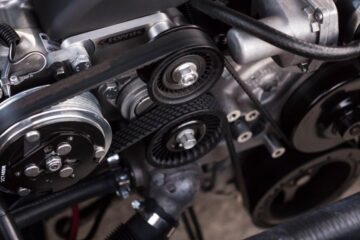
Worden voertuigen minder betrouwbaar?
In de afgelopen jaren hebben zowel autokopers als auto-experts hun zorgen geuit over een verontrustende trend: voertuigen zouden minder betrouwbaar kunnen zijn dan in voorgaande decennia. Met meldingen van vroege mechanische defecten, softwareproblemen en stijgende reparatiekosten vragen velen zich af of auto’s van tegenwoordig echt de tand des tijds kunnen doorstaan.
De perceptie versus de realiteit van moderne autobetrouwbaarheid
Op het eerste gezicht lijken moderne voertuigen geavanceerder dan ooit — uitgerust met de nieuwste technologie, rijhulpsystemen en brandstofefficiënte motoren. Toch heeft deze toegenomen complexiteit ook nieuwe uitdagingen geïntroduceerd op het gebied van langdurige betrouwbaarheid.
Waar oudere auto’s grotendeels mechanisch en eenvoudiger te repareren waren, zijn voertuigen tegenwoordig sterk afhankelijk van elektronica, computersystemen en propriëtaire software. Een enkele defecte sensor of softwarefout kan nu alles beïnvloeden, van motorprestaties tot remsystemen.
Sommige studies ondersteunen het idee dat de betrouwbaarheid afneemt. Zo hebben organisaties zoals J.D. Power en Consumer Reports een toename gerapporteerd van problemen met infotainmentsystemen, elektrische componenten en hybride of elektrische aandrijflijnen.
Factoren die bijdragen aan afnemende voertuigbetrouwbaarheid
- Toegenomen technologische complexiteit
Moderne auto’s zijn uitgerust met functies zoals adaptieve cruisecontrol, rijstrookassistentie en over-the-air updates. Hoewel deze innovaties de veiligheid en het gemak vergroten, verhogen ze ook het aantal potentiële storingspunten. - Kostenbesparende maatregelen
Om te voldoen aan de marktvraag naar lagere prijzen en lichtere materialen, maken sommige fabrikanten gebruik van goedkopere onderdelen en vereenvoudigde ontwerpen. Dit kan leiden tot vroegtijdige slijtage en hogere onderhoudskosten op de lange termijn. - Problemen met software-integratie
Met de opkomst van slimme voertuigen zijn autofabrikanten tegenwoordig net zo goed softwarebedrijven als hardwareproducenten. Softwarebugs kunnen zorgen voor alles, van kleine irritaties (zoals vastlopende touchscreens) tot ernstige veiligheidsproblemen (zoals onbedoeld accelereren of remmen). - Verkorte ontwikkelingscycli
Naarmate de concurrentie toeneemt, vooral op de EV-markt, staan autofabrikanten onder druk om sneller nieuwe modellen te lanceren. In sommige gevallen kan deze haast ten koste gaan van grondige tests en kwaliteitscontroles.
Wat dit betekent voor kopers en eigenaars
Voor consumenten zijn de gevolgen duidelijk: moderne voertuigen vereisen mogelijk vaker onderhoud, duurdere reparaties en langere bezoeken aan de dealer. De tijden waarin men een auto kon kopen en zonder problemen 300.000 kilometer kon rijden, worden steeds zeldzamer.
Toch is er nog hoop. Veel merken produceren nog steeds zeer betrouwbare voertuigen, en goed onderhoud blijft de sleutel tot een langere levensduur. Daarnaast kan het kiezen van modellen met een sterke reputatie en beperkte elektronische integratie sommige risico’s van de nieuwste technologie helpen verminderen.
De weg vooruit
Ondanks de huidige trends staat de auto-industrie niet stil. Fabrikanten investeren volop in AI-diagnostiek, voorspellend onderhoud en modulaire ontwerpbenaderingen die de betrouwbaarheid van toekomstige modellen kunnen verbeteren.
Bovendien groeit het consumentenbewustzijn. Kopers beginnen betrouwbaarheid op lange termijn en onderhoudskosten mee te wegen bij hun aankoopbeslissingen — waardoor fabrikanten gedwongen worden hierop te reageren.
Conclusie
Hoewel het lijkt alsof voertuigen minder betrouwbaar worden, weerspiegelt deze verschuiving vooral de bredere evolutie van de auto: van een puur mechanische machine naar een hightech apparaat op wielen. Zoals bij elke technologische ontwikkeling zijn er groeipijnen. Maar met voortdurende innovatie, betere kwaliteitscontroles en bewuste keuzes van consumenten kan de toekomst van autobetrouwbaarheid weer de juiste richting opgaan.













Opmerkingen
4